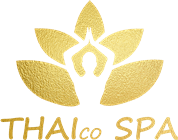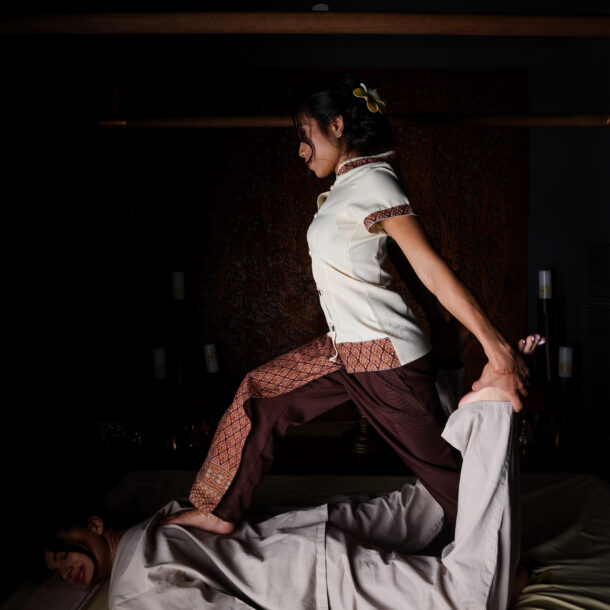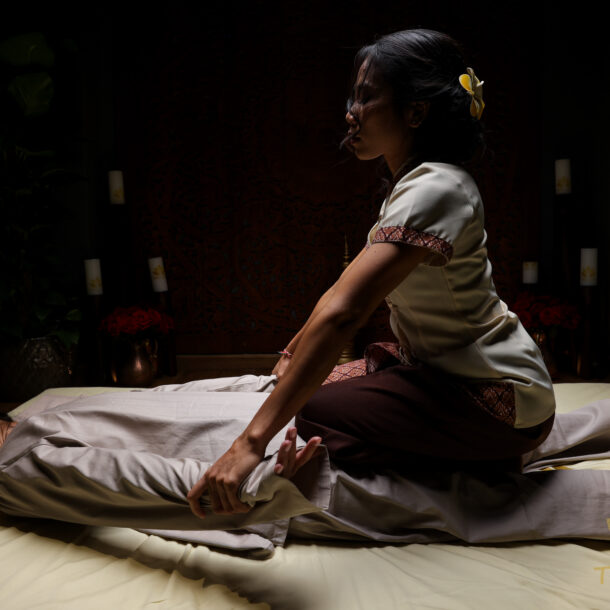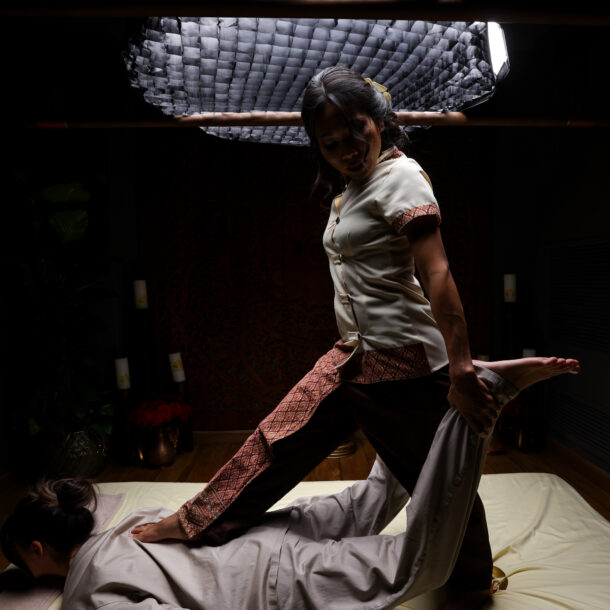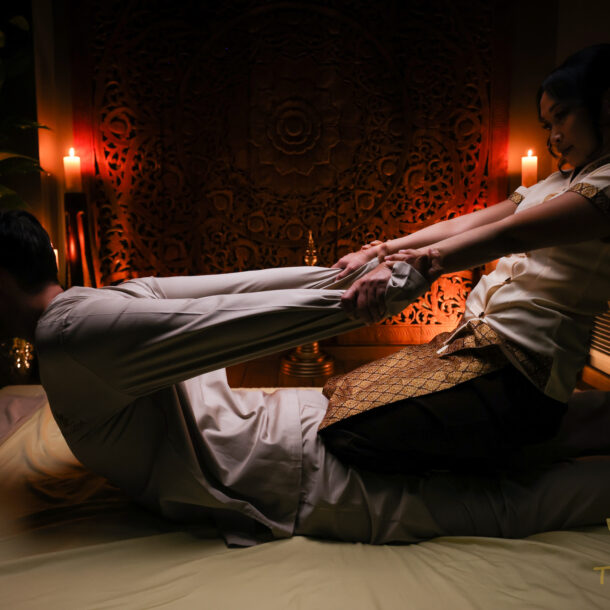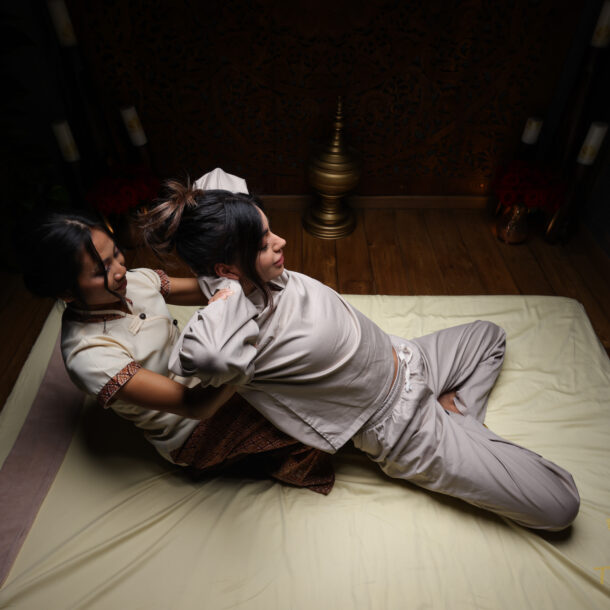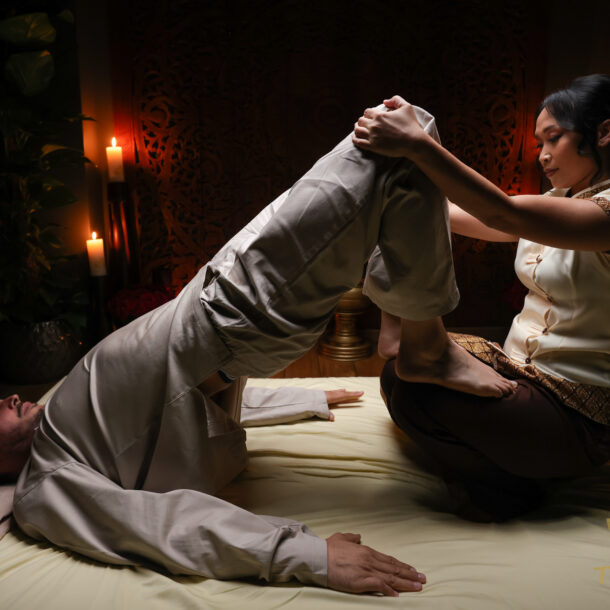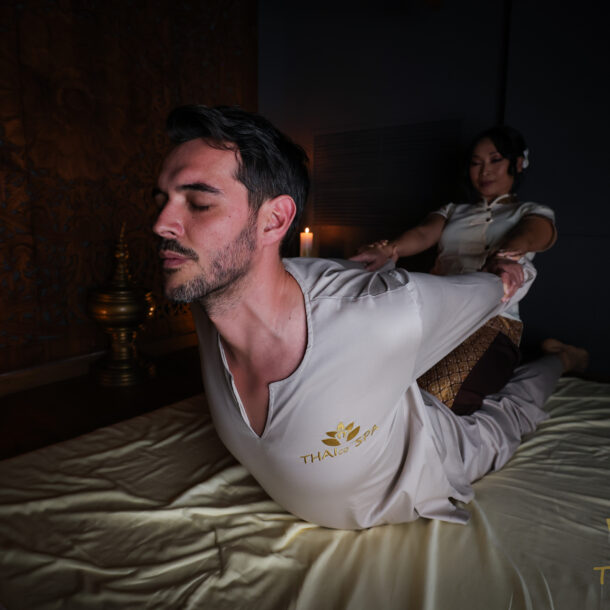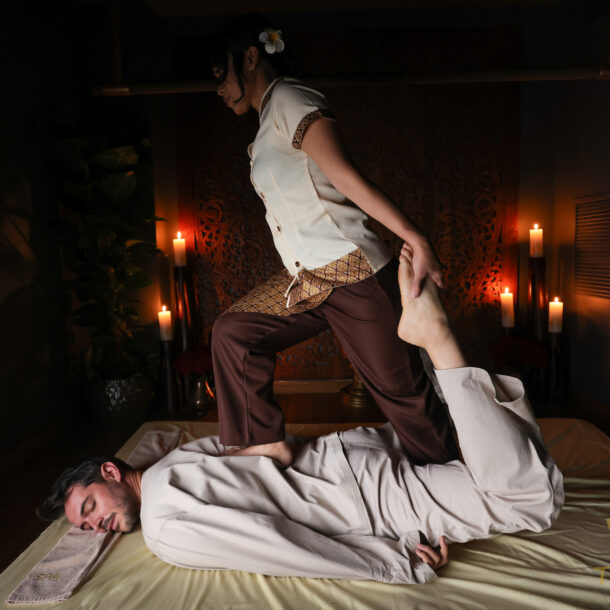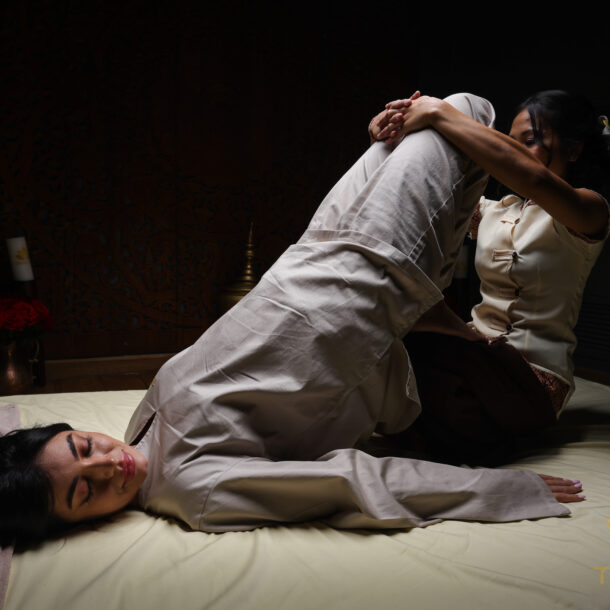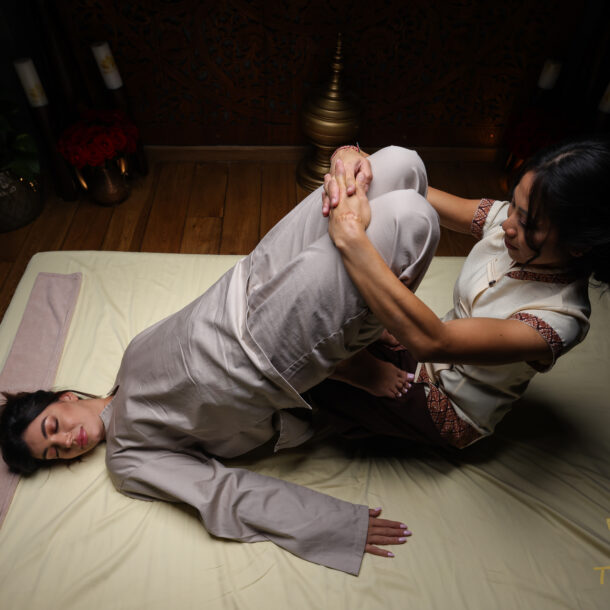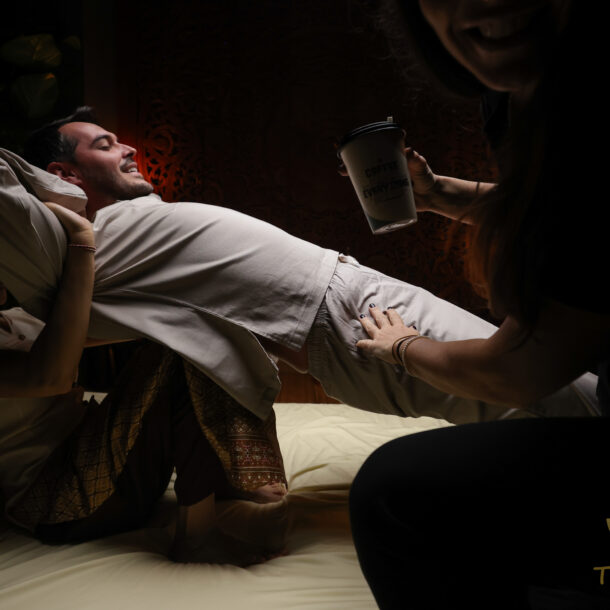Pricing & Programming
Thai massage, with its unique methods of acupressure, stretching and compression, offers numerous benefits for physical and mental health. This age-old practice helps increase strength and flexibility, relax tense muscles and relieve stress, providing a deeply relaxing and renewing experience.
What is Thai massage
Thai massage is a form of body therapy practiced for thousands of years, with origins embedded in traditional Asian medicine techniques.
Despite its name, Thai massage blends Indian, Chinese and South-East Asian techniques, creating a unique blend of acupressure, yoga-inspired stretching and compression techniques.
Features of Thai massage
One of the defining elements of Thai massage is acupressure, a method that involves applying pressure to various points on the body to stimulate energy flow and balance the body's systems.
This technique is combined with yoga-inspired stretches, which serve to tone and flex muscles and joints while providing a sense of deep relaxation.
Another distinctive technique is the gentle back straddle, a practice that helps release tension in the back muscles. This is accompanied by compressions that help to remove toxins and stimulate blood circulation.
Benefits of Thai massage
The main benefits of Thai massage include:
Increased strength and flexibility: Through yoga-inspired stretches, Thai massage helps increase strength and flexibility, working on all the major muscle groups of the body.
Relaxation of painful or strained muscles: Pressure-pressure techniques and gentle back-pedalling can help relieve muscle pain and release accumulated tension.
Stress relief: By promoting deep relaxation, Thai massage helps reduce stress and anxiety, creating a state of calm and balance.
